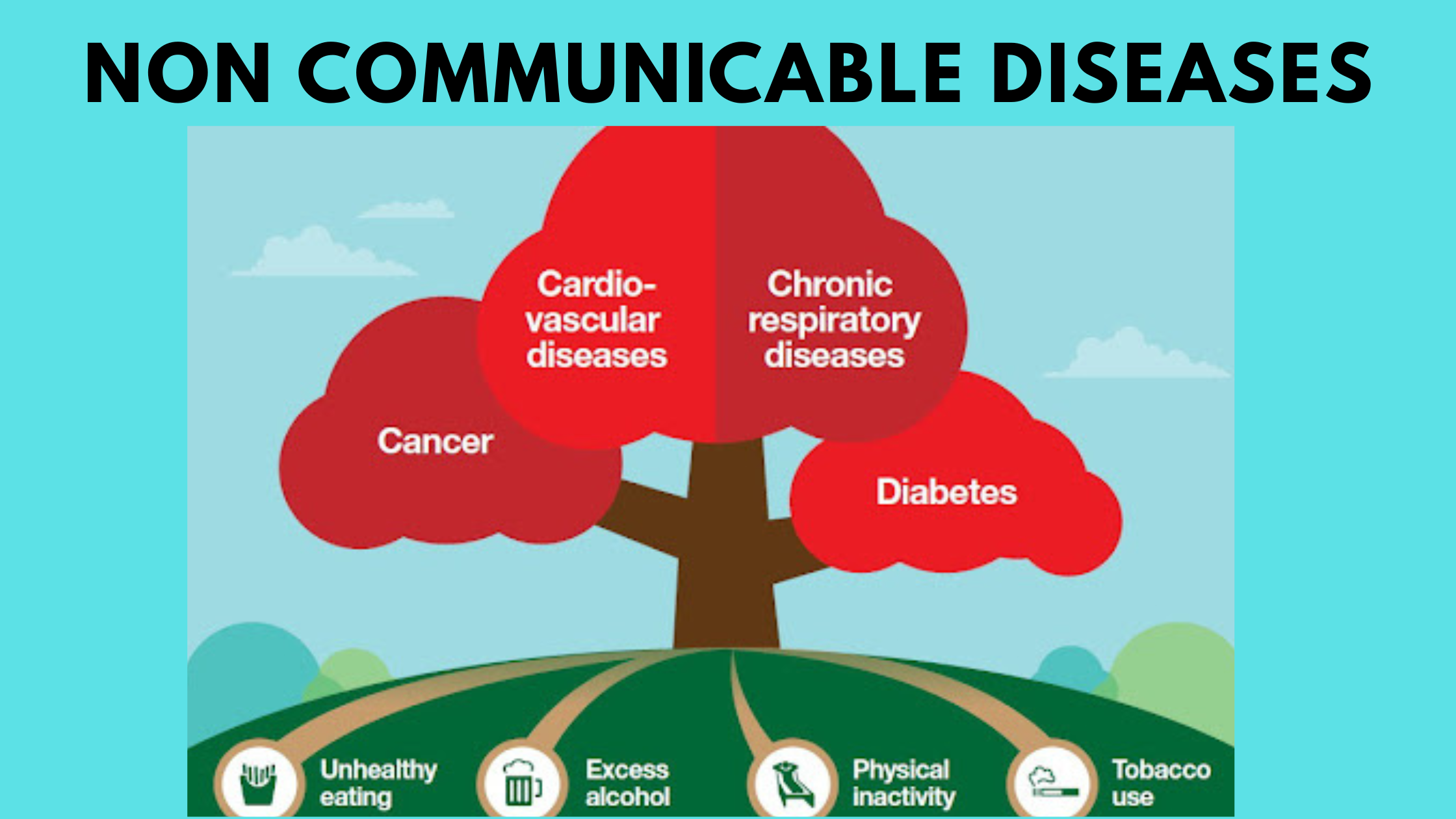“This blog will let you know about the non-communicable diseases (NCDs) like diabetes, cancer, and heart disease rank among the top killers worldwide and Pakistan Free NCDC is also working to combat them.”
5 Non-Communicable Diseases Treated Free at NCD Clinics in Pakistan
Non-communicable diseases (NCDs) now account for over 60% of deaths in Pakistan, including heart disease, diabetes, cancers, chronic respiratory diseases, and hypertension. To combat this growing epidemic, the Punjab government launched NCD clinics offering free prevention, diagnosis, and treatment services for these key conditions. Let’s explore how these clinics are making a difference, with screening, care, and support for five major NCDs.
1. Cardiovascular Diseases (CVDs)
CVDs, including coronary artery disease and stroke, remain a leading cause of mortality. In Pakistan, these disorders comprise around 48% of NCD deaths nationwide. At NCD clinics, patients receive free blood pressure and cholesterol screening, early risk assessment, and lifestyle counseling to prevent heart attacks and strokes.
2. Diabetes
With over 36 million adults living with diabetes, Pakistan has one of the highest prevalence rates globally.. NCD clinics provide free blood glucose testing, dietary guidance, and medication management. They are made in Punjab, where the diabetes rate reaches 30% to protect the poor people from this disease and provide free insulin. Even Maryam Nawaz launched a free Insulin card for children suffering from diabetes.
Read Our Blog About Maryam Nawaz Free Insulin Card for Diabetic Children in 2025
3. Chronic Respiratory Diseases (CRDs)
Conditions like asthma and COPD are rising, especially in urban centers. CRDs currently account for about 6% of deaths in Pakistan, with asthma prevalence estimated between 5–10%. NCD clinics offer free spirometry, inhaler access, smoking cessation counseling, and patient education to support long-term respiratory health.
4. Cancer
Among the 5 major NCDs, cancers pose a growing threat in Pakistan, particularly breast, lung, and colorectal cancers. Approximately 150,000 new cancer cases are diagnosed annually, with nearly 100,000 deaths. NCD clinics play a vital role in early detection via screenings, referrals, and educational outreach. These clinics are free of charge for vulnerable populations.
5. Hypertension
Hypertension affects over 40% of adults in urban Punjab, with 37% having stage I and almost 16% at stage II levels (joomla.emro.who.int). Untreated high blood pressure leads to heart disease, stroke, and kidney damage. NCD clinics provide blood pressure monitoring, lifestyle advice, and medication support to help patients manage and control their blood pressure effectively.
Why NCD Clinics Matter in Pakistan
High Disease Burden
NCDs now cause the majority of deaths in Pakistan, highlighting the urgent need for accessible care. Almost 60% deaths are due to non-communicable diseases, which is an alarming situation to mankind.
Structured Care Model
Punjab’s NCD program, initiated in 2016, aligns with WHO frameworks, integrating population-based screening, follow-up, and care, including mental health and cancer screening.
Equitable Access
Free services at NCD clinics help bridge disparities, especially among the poor, emphasizing early detection and long-term management.
Final Thoughts
As NCDs like heart disease, diabetes, cancer, respiratory conditions, and hypertension soar in Pakistan, NCD clinics offer a lifeline, providing free, essential healthcare services to those who need it most. Established by the Punjab government and guided by global health frameworks, these clinics stand as a model for equipping communities to tackle NCDs through prevention, early detection, and care.
FAQs
What is non-communicable disease?
A non-communicable disease (NCD) is a chronic condition that does not spread from person to person. Examples include diabetes, cancer, and heart disease, which are mainly caused by genetics, lifestyle, and environmental factors.
What are the 5 non communicable diseases?
The five major non-communicable diseases are cardiovascular diseases, cancer, chronic respiratory diseases, diabetes, and mental health disorders. These are leading causes of death worldwide.
How effective are these clinics?
These clinics align with WHO’s PEN (Package of Essential NCD interventions) and form a cornerstone of Pakistan’s NCD control, improving early diagnosis and disease management
Who can access these services?
All residents can use NCD clinics, particularly low-income individuals. It is helping to curb the rising NCD burden impacting over 60% of deaths in Pakistan.
What are communicable diseases?
Communicable diseases are infections that can spread from one person to another through bacteria, viruses, or parasites. Common examples include flu, tuberculosis, and COVID-19.
What are the 20 examples of non-communicable diseases?
Examples include diabetes, hypertension, asthma, cancer, Alzheimer’s disease, stroke, osteoporosis, arthritis, cataracts, depression, chronic kidney disease, thyroid disorders, epilepsy, obesity, Parkinson’s disease, liver cirrhosis, autoimmune disorders, glaucoma, hearing loss, and migraines.
What are communicable and noncommunicable?
Communicable diseases spread between people, like flu or dengue, while non-communicable diseases such as diabetes or cancer do not spread and are linked to lifestyle and genetics.



Join The Discussion